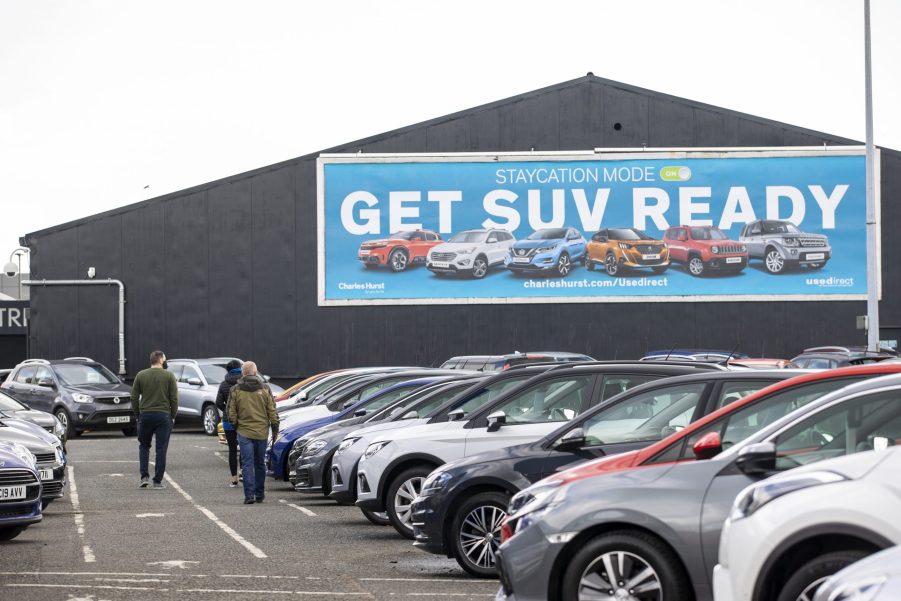
Strong Q1 2021 Sales Are Impressive Without Considering the Pandemic
There’s no question the pandemic stalled the automotive industry last year. From production and manufacturing to dealership sales for consumer car shopping, there isn’t an industry segment untouched by the economic shutdowns and consumer hesitations to engage in 2020.
But it’s a new year now, the plants are operational, and car buyers are ready to finalize their vehicle purchases. Consumers are rushing back to buy in droves this year. As we head into Q2, the analysts are weighing in on Q1 sales performance data. The first three auto sales months of 2021 have proven to be strong, and, in many instances, impressive, even without considering the pandemic. For car buyers, a sales rebound like this is really good news.
The proof is in the sales comparisons
Marklines.com reports that light-vehicle sales here in the U.S. hit 1,605,115 units in March, a drastic increase of 61.9 percent from March 2020. Truck and SUV sales spiked more than 70 percent too. This strong Q1 performance demonstrates consumers’ demand for sedans, pickups, and SUVs across the board. And many suggest this strong pace is expected to carry on through the rest of the year.
Another impressive interpretation of the sales jumps
Edmunds’ senior director of insights, Jessica Caldwell, shares another interpretation of the recent growth in 1Q auto sales in a recent release. She says this overarching improvement shouldn’t be overshadowed by the past pandemic conditions of 2020. The industry is rebounding beyond the number of shutdowns and public quarantines that began last March.
Caldwell points out that the economic impacts didn’t officially hit the market until the final two weeks of March. She calls this year’s performance “no small feat.” The kind of sales numbers the automakers are reporting is beyond impressive even when you take the pandemic out of the equation.
Big gains for several automakers
Car and Driver points out several automakers that showed a ground-breaking double-digit growth in sales. Hyundai experienced a 28 percent jump in sales, while Nissan saw an 11 percent increase. Toyota sales jumped 22 percent in the first quarter, and Tesla and Subaru also experienced gains. Stellantis, formerly FCA, experienced increases across the Chrysler, Ram, and Jeep portfolios by eight percent.
On the luxury side, Automotive World shared BMW’s success, with 636,606 vehicles sold, marking a 33.5 percent sales hike from 1Q of last year. Lexus also reported significant gains, especially with its popular Lexus RX, which was up 34 percent from last year. And Mercedes-Benz reported a 19.5 percent sales gain this Q1 compared to the same period in 2020.
The flip side perspective of these Q1 gains
Charlie Chesbrough, a senior economist for Cox Automotive, shares his opposing predictions during an interview with Forbes. He suggests the robust Q1 rebound the industry is seeing now isn’t entirely an accurate depiction of consistency. He reminds analysts that a significant portion of car buyers weren’t buying at all for several months in 2020. And with a return to normal, there may have been a floodgate effect of buyers hitting the market at once. Chesbrough suggests it may be better to compare Q1 2021 data with Q1 2019 instead.
The automotive industry isn’t necessarily out of the woods just yet. There are still shortages of used inventory and occasional manufacturing hiccups, causing intermittent delays. But Q1 sales suggest consumers are still buying, and automakers are still introducing innovative rides. It’s hard to predict what the rest of the year will look like in terms of sales success. But even the analysts and critics seem optimistic about the current growth momentum. And this kind of momentum only translates to better vehicles, more competitive pricing, and good news for car-buying consumers.


